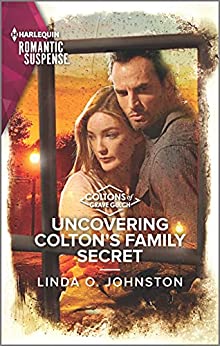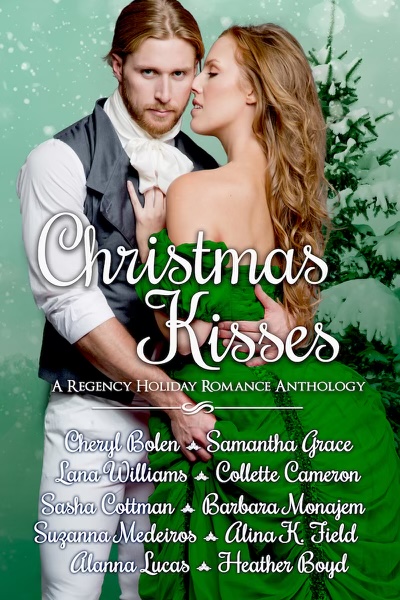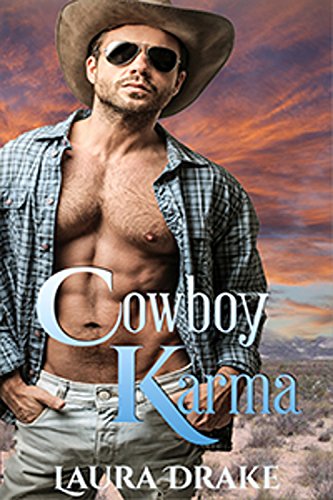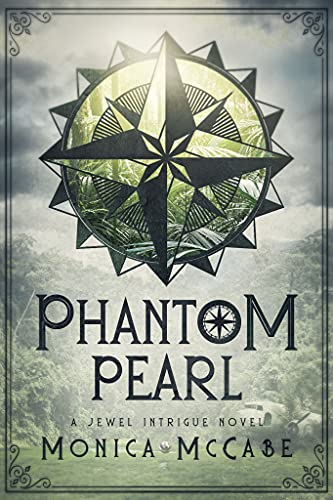Rules of the Road by Jenny Jensen
September 19, 2020 by Jenny Jensen in category On writing . . . by Jenny Jensen, Writing
Rules of the Road
I enjoy driving, except for those time when some numptie ignores traffic rules. Whizzing through red lights, flying through stop signs, speeding, texting, ignoring yield signs all certainly disrupt the smooth flow of traffic, often catastrophically. We good drivers know that those who chose to ignore the rules are the bad drivers—or failed ones. While I have the choice to take defensive action in traffic and avoid most collisions I find I can’t defend against, avoid or ignore writers who chose to ignore the rules of grammar and punctuation. I’d rather just close the book or delete it.
I’m not a grisly grammarian or a pedantic pedagogue (redundant?) – really! It’s that I love our beautiful language and I love to read, to immerse myself in the lyrical flow of words well written and a story well told. I admit there have been times I wished I carried a big read marker so I could correct an egregious misuse. “Hunters please use caution when hunting pedestrians using walk trails” being one example that gave me really itchy fingers. I was laughing too hard to be incensed, though I did worry a bit about getting shot.

The rules of the written word are like the rules of the road, a map to smooth sailing. Correct punctuation guides the reader, unconsciously and effortlessly, to get where she wants to be; lost in the story. Commas tell the reader to take a breath, or make instant sense of a string of adjectives or a list. Commas are what show the meaning, cadence and flow of a character’s voice. A semi colon or an em-dash tells the reader to yield just a touch then get onto a related point. Quotation marks show who is speaking and for how long. An ellipses indicates a pause or shows that a thought has trailed off. A period brings our reader eye to a full stop.
The rules of grammar set the reader free of confusing nests of conflicting definitions. Does “Their on the way to the concert” mean ‘The goose/uncle/cockatoo belonging to the characters is headed to the concert and the object of the sentence just got left out? Or is the dialog meant to suggest there is the way to the concert, or did the writer intend a sensible contraction, they’re? Sneaky homophones.

I’m disappointed when an intriguing story is riddled with errors of grammar and punctuation. I really want to hear the tale but I’m forced to puzzle out meaning and narrative flow – even if it only takes an instant to understand, that instant is too long. It just isn’t necessary. The only time the rules of grammar and punctuation are unimportant is during the process of creating. Who cares if draft #1 is a grammarian’s nightmare? Or drafts #2 – 4 for that matter. What’s important at that stage is getting the story down, then making it work, then making it sing—no matter how many drafts it takes.
Once the story pleases the author there is no excuse to launch it into the world without a proper proofing. If a writer feels a full edit isn’t needed, that’s their choice but believe me when I say every published work should first be proofed. There are hundreds of editors—including myself—who offer that professional service at a reasonable price. A thorough proofing is worthy of the energy put into creating the book and respectful of the language and the reader.
Whew! A rant. Thanks for listening.
1 1 Read moreMasque, Masquerade, Mask
August 19, 2020 by Jenny Jensen in category On writing . . . by Jenny Jensen tagged as characterization, editing, writing No! I’m not going to weigh in on the mask vs no mask debate. Really.
No! I’m not going to weigh in on the mask vs no mask debate. Really.
I am an inveterate people watcher. Sometimes I go overboard and get caught staring — awkward. Honestly, it’s not you I’m looking at, it’s the potential character the physical ‘you’ suggests to me. I’m pretty sure all writers do that to one degree or another. It can’t be helped. Some people just like a (too) kindly grandmother, or a shifty con man or a fairy princess or a sharkish accountant.
Faces reveal so much, from hidden agendas to unspoken feelings, spontaneous joy to suppressed fury. It’s fertile ground for the writer. Anne Perry uses the reading of facial expressions to heighten tension and create suspense. In her hands it’s a plot device and she’s brilliant at it. Add body language to that and a character comes fully to life. It’s also a great way to stomp down those unwanted dialog tags; showing the reader who’s speaking is miles better than telling.
Just watching the emotional beats revealed on the faces of two friends having coffee can jumpstart a story and the story can shift and morph if I switch genres in my head. (Yep, I start a lot of imaginary tales. It’s more fun than Sudoku.) Narrowed eyes and rigid lips mean one thing in a spy thriller and quite another in a romance. Add the tilt of the head and a clinching of fists and it could work for either the inciting incident or the denouement.
Now most of us are masked and I have to shift my game. We’re all consciously trying to keep a six-foot distance and it makes for some very stilted body language! A woman turned from the pasta aisle just as I was turning in, our carts nearly colliding. That’s a common enough occurrance at the grocery store and usually each party smiles and laughs and maneuvers on their way. I found myself braying an exaggerated laugh, shrugging my shoulders and my “oh sorry” came out a bit over bright. It was the mirror response of this woman. We couldn’t read each other’s faces. An apologetic smile doesn’t do it any longer.
They say we need to adjust to a new normal. I’m not sure what that’s supposed to mean, but I can imagine all this maskedness and artful distancing will add some very intriguing elements to contemporary fiction. How will strangers meet and grow a romance? Is love at first sight a victim of the pandemic? How will antagonists make use of the fact that with a baseball cap, sunglasses and the compulsory mask one is virtually unidentifiable? Think of the wonderful mix-ups this could lead to. Great fodder for screw-ball comedy. Or great fodder for murder and mayhem.
It will be impossible to ignore Corvid in writing contemporary stories. At the very least it will have to serve as atmosphere, but there are elements of this awful reality that present nearly endless plot possibilities — as nearly endless as this shutdown feels. I can’t wait to read them.

Jenny Jensen
Editor
0 0 Read morePORTMANTEAUS*
July 19, 2020 by Jenny Jensen in category On writing . . . by Jenny Jensen, Writing tagged as #writing, editing, words
We’re so lucky. The English language is like play dough.
Oh yes, we have strict rules of grammar, tense, POV, all the way to the minutia of intransitive verbs. We can choose from a number of eminent grammar and style guides to ensure conformity. We have stalwart English teachers to drill those rules into our heads so that we are all on the same page. (And bless them all – there is nothing better than order over chaos). But despite those rules a writer has so much freedom to shape our mother tongue into forms wry, brittle, silly, heartbreaking, snarky or just plain mad.
I don’t have much command of any other language; a smatter of German, a soupçon of French, about a third cup of Latin and a healthy plateful of Spanish. But I do know that the rules of those languages are not as forgiving as English — not as much room to roam before you run afoul of the language police. English allows us to mangle all the rules of spelling, meaning, and sentence structure to reflect dialect, or character traits, add color, shift perceptions or mood and anyone with a good command of English can understand — and only pedants ever complain. Of course, you have to use the rules of punctuation. Gotta have those traffic signs.
Anthony Burgess used bits and pieces of Russian mixed with Shakespearian English and other tongues to give us Nadsat, the terrifyingly unique argot of his dark characters in A Clockwork Orange. The reader may have had to work at it a bit, but it was intelligible and colored the story with an unforgettable feel. Fantasy and Sci Fi from J.K. Rowling to Ursula K. Le Guin play with all sorts of mixed up language that become magical words and when you’re reading in those worlds you understand.
Dialect and special vocabulary enrich a tale on many levels and I’m in awe of those writers who do them well, but my favorite form of play dough English is the portmanteau. Anybody can create one of these inventive combinations, and everybody does — usually with something faintly deprecating or ironically funny in mind. And with just one word a portmanteau can ooze with meaning. Frenemy speaks volumes — we’ve all had one and it’s exhilarating to give ‘em a proper name. Craptacular very neatly wraps up the verdict on so much of our over-hyped media. And then there’s pompidity, my own invention from University days when I struggled to describe the quality of politicians.
All writers love words. Words are paint, chisel, fabric, and clay for our creativity. If you can’t find that one word that perfectly reflects your intent, try cobbling a new one together — no one will take points away. Blog is a portmanteau (web log) so if you’re lucky enough to have your portmanteau go viral, you might wind up in the OED.
 With a BA in Anthropology and English Jenny pursued a career in advertising and writing and segued into developmental editing. She has worked on nearly 400 books during her career. Her clients include both traditionally published and indie authors. She has worked in every genre from romance to horror and thrillers as well as edited Air Force manuals, commercial communications and memoirs. She offers every service from copyediting to developmental coaching.
With a BA in Anthropology and English Jenny pursued a career in advertising and writing and segued into developmental editing. She has worked on nearly 400 books during her career. Her clients include both traditionally published and indie authors. She has worked in every genre from romance to horror and thrillers as well as edited Air Force manuals, commercial communications and memoirs. She offers every service from copyediting to developmental coaching.
*This blog is an oldie but goodie, originally published in March, 2018
2 0 Read more
CHOICES
June 19, 2020 by Jenny Jensen in category On writing . . . by Jenny Jensen, Writing tagged as inspiration, writing, writing craft
In the oceans of writing instruction and advice available to anyone with a search engine I look for everything publishers have to say about current trends. Since you can’t really access publisher’s marketing info — and certainly not Amazon’s sales data — that’s as close to the horse’s mouth as I can get to learn about sales trends. That’s info that helps me help my clients. One offering stands out about contemporary fiction: keep the narrative fast paced. This digital world of FX, Twitter, flash fiction, etc. has our brains wired for lightening fast action. There’s not a lot of room for ruminating on superfluous details of landscape, the nature of family bonds or the sounds of church bells. The story has to gallop from the starting gate to capture and compel a reader. I think we all get that. What’s interesting to me are the narrative techniques an author can use to set and maintain that just-right pace.
Voice and tense are formidable tools to heighten tension, move action and hook and hold the reader. I don’t know what goes into an author’s decisions about what tense and voice to use but I’ll venture to guess it most often comes organically. When a protagonist begins to take shape in the creative sphere of the brain the author hears 3rd Person or 1st Person (which is tricky to write but such fun to read when done well) and the story grows in the mind in the present or past tense. Past tense is most common in fiction (and has been for eons) and is almost always 3rd Person. Present tense is more commonly used with 1st P voice; it creates an immediacy and intimacy that’s very engaging.
I’d never given a thought to 3rd Person present tense. Then I discovered the who-dun-it series of British writer Bruce Beckham. He’s amazing! Set in Britain’s Lake District his detective, Skelgill, is an irresistible mixture of irascible, self-centered, scruffy, generous and intuitive. Every character is roundly drawn and intriguing, the setting is as integral a character as the murderer and the pace never lags. Beckham accomplishes all of this in 3rd Person (omniscient) voice, present tense. It’s an unusual combination but in the hands of this author it is riveting.
It’s how he uses this tool to set and maintain a perfect pace and to draw the reader so fully into his world that amazed me. Reading a narrative described to you by an unknown, unseen, non-judgmental voice as the action unfolds just shouldn’t work. But it does. It’s like having your eyes covered at the movies while a very erudite friend describes what is happening on-screen.
Beckham is a master wordsmith and so uses dialog to show characterization and plot points but the present tense and 3rd P voice puts the reader in a front row seat as the action scenes unfold before our eyes. I didn’t feel as though I was right there — I was right there.
A writer’s choice of voice and tense would have to be dependent, in some part, on the story they are telling. Not every tale will fit just any combination. But it is amazing what a powerful difference the choice can make.

JENNY JENSEN
jennyjenseneditor.com
With a BA in Anthropology and English I pursued a career in advertising and writing and segued into developmental editing. It was a great choice for me. I love the process of creating and am privileged to be part of that process for so many great voices — voices both seasoned and new.
I’ve worked on nearly 400 books over 25 years, books by noted authors published by New York houses as well as with Indie bestsellers and Amazon dynamos. From Air Force manuals and marketing materials to memoirs, thrillers, sci fi and romance, my services range from copyediting to developmental coaching.
Having worked in advertising and marketing, I am always cognizant of the marketplace in which the author’s work will be seen. I coach for content and style with that knowledge in mind in order to maximize sales and/or educational potential. My objective is to help the author’s material stand out from an ever more crowded and competitive field.
0 0 Read moreSharing Thoughts by Jenny Jensen
May 19, 2020 by Jenny Jensen in category On writing . . . by Jenny Jensen tagged as gossip, memory, Storytelling
I told myself I am not going to write about Corvid19, quarantining, masks, six feet of distance or the improbably exotic recipes popping up in my in-box (sheesh, they sound like neurosurgery). Do I have anything other than what’s top of all our minds to share? With relief, I realize I do.
My current project is editing a non-fiction manuscript written by a gentleman who has a national, well-respected reputation as a consultant and researcher to advertising agencies. He tests and provides direction for successful ads. He is doing a book on memory. Not his remembrances of things past, but how memory works with firing neurons and synapsis and all the physiological doo dads whirring around in our brains and how that leads to building different types of memories. (After all, the manufacturer does want her snack food/disposable razor/perfume/car to always be the strongest memory, always top of the consumer’s mind.)
My client bases his approach to successful ads on the structure of storytelling as that innate human characteristic is ultimately what drives communication—this is something the Slice of Orange community knows quite a bit about so it is fascinating to see the storyteller’s principles applied to something as work-a-day as marketing. He uses the work of neuroscientists, philosophers, script writers, cartoonists and psychiatrists to back up the idea that human speech developed from the need to communicate a story – gossip.
Okay. I don’t quibble because I know that storytelling is fundamental to every human I’ve ever met. It’s the good storytellers, the writers, who touch us the most deeply; those are the stories that are memorable. What the good storyteller knows—the arc of inciting incident to climax to resolution, and all the beats and color and emotion and drama that get the story to those points—is also fundamental to good advertising. And that is linked to how our brains make memories.
I consider the ads that stick in my memory. Some of these are really long-term memories, coming from childhood—does anyone ever forget Speedy Gonzales or Tony the Tiger? They’re complete, miniature stories and I’ve retained the high points. “Where’s the Beef” had all the emotional beats of a 350 page novel and whether or not I consciously made the connection, I had Wendy’s top of mind for my beef fix. It was impossible to see a giant choir of fresh-faced kids singing I’d Like To Teach the World to Sing without thinking of Coca Cola and hearing a million different emotion charged stories. All of those marketing moments—and more—hit an emotional note that became an indelible memory. Wow! Good story telling is magical.
This new perspective, with its emphasis on memory and the potency of storytelling, will be top of mind for me on my next fiction project. I don’t know that it will change how I look at the content of a story or the effectiveness of the structure and style. I’m not sure it will effect how I edit the manuscript but it’s refreshing to learn that the things good writer’s know instinctively can be measured and diagramed and graphed and applied to any creative endeavor.
There is one sticking point, however. I remain unconvinced that language developed from an irresistible urge to gossip. Putting myself in caveman days I prefer to think our species began talking because of an irresistible urge to warn me of the saber-tooth tiger leering at me from the cliff above. It’d clearly be time to run—and that’s a story.
Affiliate Links
A Slice of Orange is an affiliate with some of the booksellers listed on this website, including Barnes & Nobel, Books A Million, iBooks, Kobo, and Smashwords. This means A Slice of Orange may earn a small advertising fee from sales made through the links used on this website. There are reminders of these affiliate links on the pages for individual books.
Search A Slice of Orange
Find a Column
Archives
Featured Books
UNDERCOVERING COLTON’S FAMILY SECRETS
Coming face-to-face with her past…
More info →CHRISTMAS KISSES
Heat up the holiday with ten dreamy regency rogues!
More info →COWBOY KARMA
Karma is a good judge of character, and you my friend, are screwed
More info →PHANTOM PEARL
She pushed the edge of legal in her hunt for priceless antiquities.
More info →Newsletter
Contributing Authors
Search A Slice of Orange
Find a Column
Archives
Authors in the Bookstore
- A. E. Decker
- A. J. Scudiere
- A.J. Sidransky
- A.M. Roark
- Abby Collette
- Alanna Lucus
- Albert Marrin
- Alice Duncan
- Alina K. Field
- Alison Green Myers
- Andi Lawrencovna
- Andrew C Raiford
- Angela Pryce
- Aviva Vaughn
- Barbara Ankrum
- Bethlehem Writers Group, LLC
- Carol L. Wright
- Celeste Barclay
- Christina Alexandra
- Christopher D. Ochs
- Claire Davon
- Claire Naden
- Courtnee Turner Hoyle
- Courtney Annicchiarico
- D. Lieber
- Daniel V. Meier Jr.
- Debra Dixon
- Debra H. Goldstein
- Debra Holland
- Dee Ann Palmer
- Denise M. Colby
- Diane Benefiel
- Diane Sismour
- Dianna Sinovic
- DT Krippene
- E.B. Dawson
- Emilie Dallaire
- Emily Brightwell
- Emily PW Murphy
- Fae Rowen
- Faith L. Justice
- Frances Amati
- Geralyn Corcillo
- Glynnis Campbell
- Greg Jolley
- H. O. Charles
- Jaclyn Roché
- Jacqueline Diamond
- Janet Lynn and Will Zeilinger
- Jaya Mehta
- Jeannine Atkins
- Jeff Baird
- Jenna Barwin
- Jenne Kern
- Jennifer D. Bokal
- Jennifer Lyon
- Jerome W. McFadden
- Jill Piscitello
- Jina Bacarr
- Jo A. Hiestand
- Jodi Bogert
- Jolina Petersheim
- Jonathan Maberry
- Joy Allyson
- Judy Duarte
- Justin Murphy
- Justine Davis
- Kat Martin
- Kidd Wadsworth
- Kitty Bucholtz
- Kristy Tate
- Larry Deibert
- Larry Hamilton
- Laura Drake
- Laurie Stevens
- Leslie Knowles
- Li-Ying Lundquist
- Linda Carroll-Bradd
- Linda Lappin
- Linda McLaughlin
- Linda O. Johnston
- Lisa Preston
- Lolo Paige
- Loran Holt
- Lynette M. Burrows
- Lyssa Kay Adams
- Madeline Ash
- Margarita Engle
- Marguerite Quantaine
- Marianne H. Donley
- Mary Castillo
- Maureen Klovers
- Megan Haskell
- Melanie Waterbury
- Melisa Rivero
- Melissa Chambers
- Melodie Winawer
- Meriam Wilhelm
- Mikel J. Wilson
- Mindy Neff
- Monica McCabe
- Nancy Brashear
- Neetu Malik
- Nikki Prince
- Once Upon Anthologies
- Paula Gail Benson
- Penny Reid
- Peter J Barbour
- Priscilla Oliveras
- R. H. Kohno
- Rachel Hailey
- Ralph Hieb
- Ramcy Diek
- Ransom Stephens
- Rebecca Forster
- Renae Wrich
- Roxy Matthews
- Ryder Hunte Clancy
- Sally Paradysz
- Sheila Colón-Bagley
- Simone de Muñoz
- Sophie Barnes
- Susan Kaye Quinn
- Susan Lynn Meyer
- Susan Squires
- T. D. Fox
- Tara C. Allred
- Tara Lain
- Tari Lynn Jewett
- Terri Osburn
- Tracy Reed
- Vera Jane Cook
- Vicki Crum
- Writing Something Romantic
Affiliate Links
A Slice of Orange is an affiliate with some of the booksellers listed on this website, including Barnes & Nobel, Books A Million, iBooks, Kobo, and Smashwords. This means A Slice of Orange may earn a small advertising fee from sales made through the links used on this website. There are reminders of these affiliate links on the pages for individual books.









































